Boost Your Demolition Bids – Request a Precision Estimate!
- Accurancy
- Efficiency
- Transparency
- Customization
- Time Saving
- Professionalism
- Cost Control
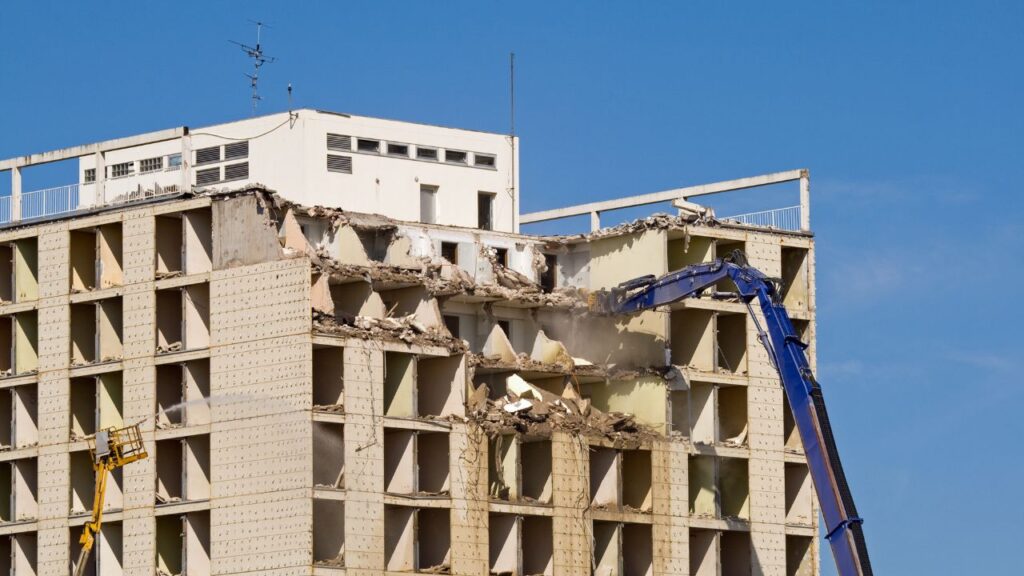
Cottage demolition is a significant undertaking that requires careful planning, consideration of various factors, and a thorough estimation of costs. Whether you’re looking to renovate or rebuild, understanding the key elements that influence the expenses associated with cottage demolition is crucial. In this comprehensive guide, we’ll explore the factors affecting cottage demolition costs and provide insights to help you navigate this complex process.
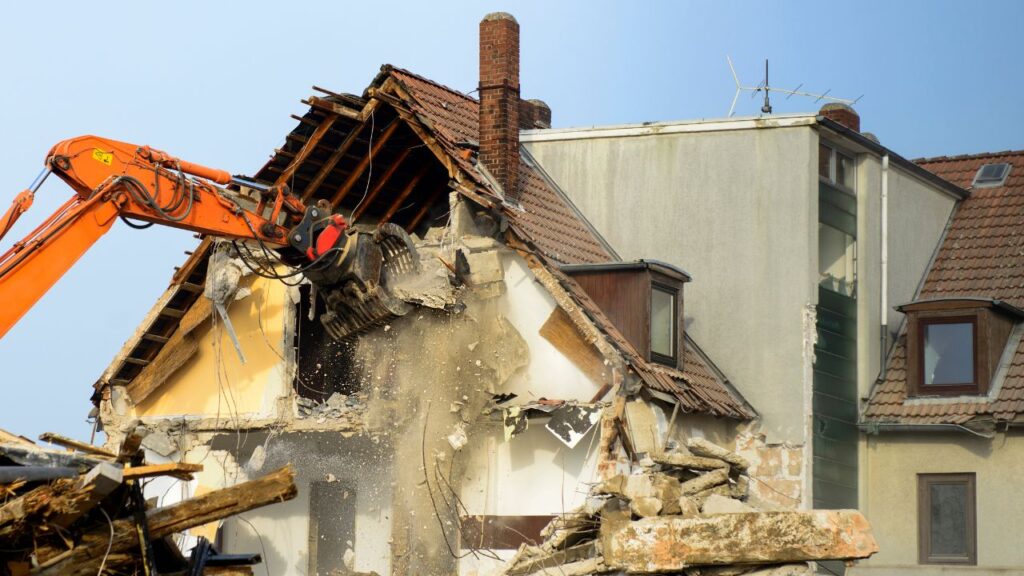
The size and structure of the cottage wield significant influence over the costs associated with demolition. Larger cottages, especially those boasting intricate architectural features, often translate to extended project timelines. The need for specialized equipment and additional labor to navigate complex structures contributes to higher expenses. As the dimensions and intricacy of the cottage increase, so do the demands on resources, impacting the overall budget for demolition.
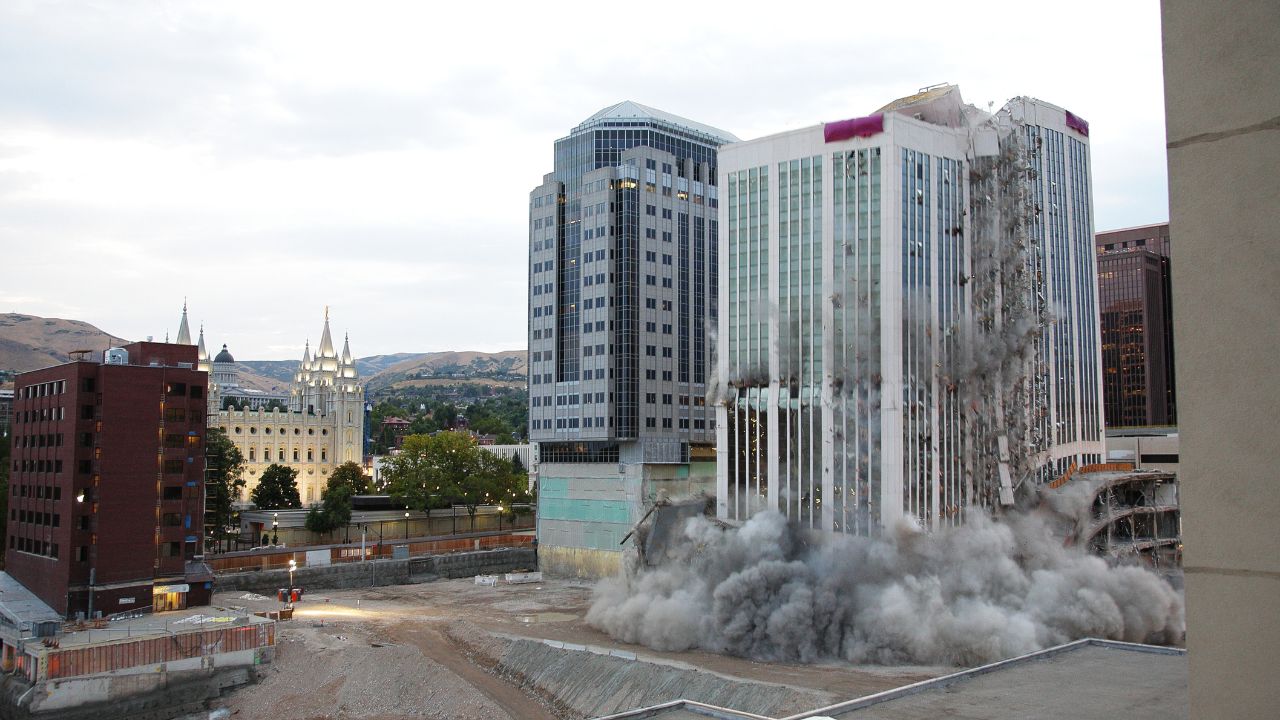
Fully Insured Licensed Hire Contractor For Demolition
Hire Contractor
Make Informed Design Decisions Showcase Your Design Ideas
Get RenderingThe choice of materials in the cottage’s construction is a key determinant of demolition costs. Different materials, whether wood, brick, or concrete, necessitate distinct demolition methods. Wooden structures may be more straightforward to dismantle, while brick or concrete may require specialized equipment and techniques, impacting both time and expenses. Additionally, the construction type, such as whether it’s a single-story or multi-level cottage, introduces varying degrees of complexity, further influencing the overall cost of the demolition process.
The accessibility of the demolition site is a critical factor that can substantially affect costs. Cottages situated in remote locations or those with limited access for heavy machinery may require alternative methods or additional labor. Transporting equipment to challenging locations increases logistical complexities, contributing to higher expenses. Assessing and addressing site accessibility challenges early in the planning stage is crucial for accurate cost estimation.
Environmental considerations are paramount in demolition projects, impacting both ethical practices and associated costs. Compliance with environmental regulations is essential, and responsible waste disposal practices are mandatory. Proper handling of hazardous materials, implementing recycling efforts, and strict adherence to local disposal regulations contribute to the overall expenses. While environmentally conscious practices may incur additional costs, they are an investment in sustainable and responsible demolition.
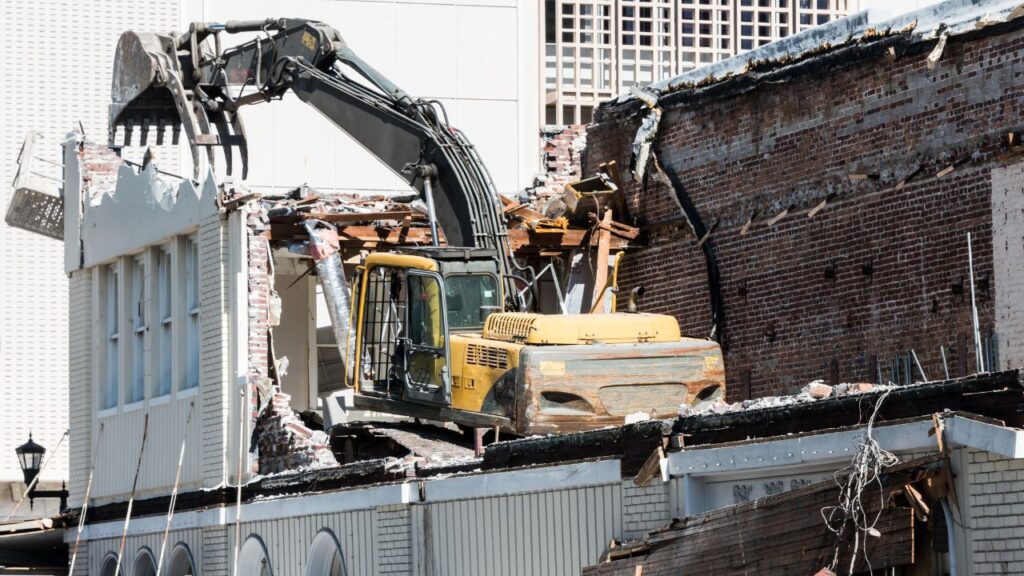
Securing necessary permits and complying with local regulations are foundational aspects of the demolition process. Permit fees, along with meeting specific requirements set by local authorities, contribute significantly to the overall cost. The complexities of navigating regulatory frameworks and ensuring all necessary documentation is in order add a bureaucratic layer that demands careful attention during the cost estimation process.
Before initiating the demolition, utilities such as water, gas, and electricity must be safely disconnected. The coordination and execution of these disconnection processes add to the overall cost. Ensuring a systematic and safe disconnection requires professional expertise and may involve additional expenses, reflecting the importance of a well-coordinated effort in the pre-demolition phase.
The removal and disposal of debris generated during the demolition, coupled with comprehensive site clean-up, are integral components of the process. Costs associated with waste disposal, dumpster rentals, and site restoration contribute significantly to the final budget. The efficient management of debris removal and site clean-up is not only a financial consideration but also a crucial aspect of ensuring the project’s overall success and adherence to safety standards.

The identification and salvage of materials within the cottage that can be reused present an opportunity to offset some of the demolition costs. Salvaging materials not only aligns with eco-friendly practices but can also prove to be a cost-effective approach. However, the extent to which materials can be salvaged depends on factors such as the condition of the materials and the construction methods employed in the original cottage. Integrating salvageable materials into the demolition plan requires careful assessment and consideration during the cost estimation phase.
The initial step in preparing for a cottage demolition is conducting a thorough site assessment. This involves a meticulous examination of the size, structure, and specific features of the cottage and its surroundings. Understanding the topography, existing utilities, and any potential challenges, such as neighboring structures or environmental considerations, is crucial. This comprehensive assessment provides the groundwork for accurate cost estimation, allowing for a strategic and well-informed approach to the upcoming demolition project.
Engaging in consultations with experienced demolition experts is a pivotal stage in the planning process. These professionals bring specialized knowledge and insights into the specific requirements of the cottage demolition project. Through collaborative discussions, they can offer valuable input on potential challenges, optimal demolition techniques, and resource requirements. The expertise of demolition contractors contributes to the refinement of cost estimates, ensuring that the budget aligns with the unique characteristics of the cottage and the demolition site.
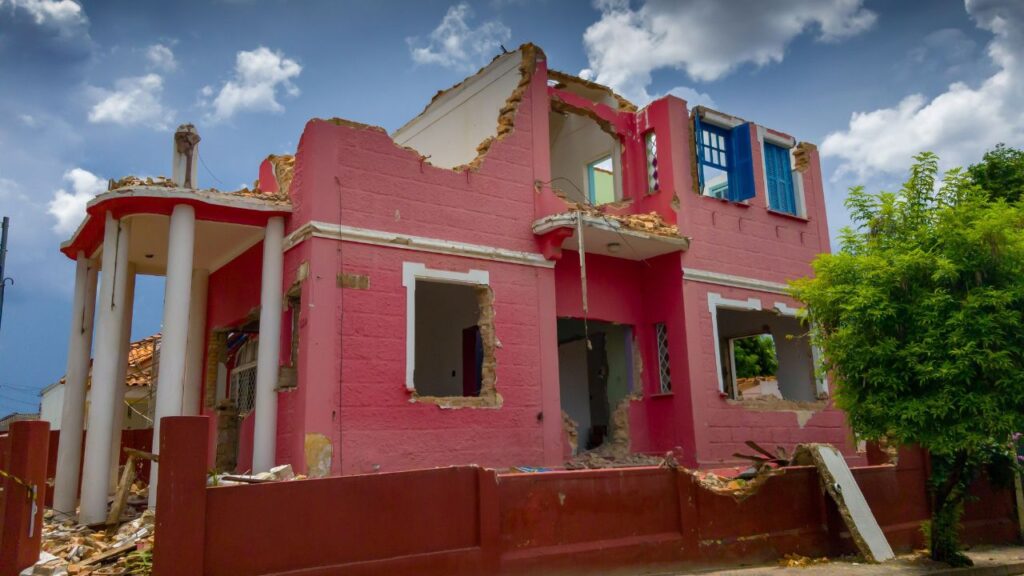
Navigating the regulatory landscape is a critical aspect of preparing for cottage demolition. Thorough research into local regulations is essential, and obtaining the necessary permits is a prerequisite for a legal and smooth demolition process. Costs associated with permit fees and additional requirements imposed by local authorities should be factored into the overall budget. Prioritizing regulatory compliance not only avoids legal complications but also establishes a foundation for responsible and transparent project management.
Effective waste management and recycling strategies are integral components of a sustainable demolition project. Planning for the disposal of hazardous materials, identifying salvageable items, and arranging for dumpster rentals and waste removal services are essential considerations. Obtaining quotes for these services allows for a realistic assessment of associated costs. Embracing environmentally conscious waste management practices not only aligns with ethical considerations but can also impact the overall budget by optimizing resource usage.
Estimating labor costs is a crucial aspect of preparing for cottage demolition. This involves evaluating the anticipated duration of the project based on factors such as size, complexity, and structural intricacies. Additionally, considering the type and size of equipment required for efficient and safe demolition is essential. Skilled labor and specialized machinery contribute to the overall efficiency of the project, and accurate cost estimation in this regard ensures that the budget adequately covers these critical aspects of the demolition process.
The final phase of the demolition process involves site restoration. Accounting for costs related to grading, seeding, or other landscaping activities is vital for ensuring that the demolition site is returned to a safe and aesthetically pleasing condition. Proper site restoration not only satisfies regulatory requirements but also contributes to the overall success of the project. Allocating budgetary resources for this phase underscores a commitment to responsible project completion and community well-being.
Cottage demolition costs vary based on factors such as size, age, location, and condition of the cottage. The cost is typically measured per square foot, ranging from $2.40 to $30 per square foot, with an average falling between $4.80 and $18 per square foot. For a complete teardown of a 1,500-square-foot cottage, the cost can range from $3,600 to $30,000, considering factors like the presence of a foundation or basement. If opting for tearing down and rebuilding the cottage, the expenses can escalate, ranging from $150,000 to $540,000. It’s important to note that these cost estimates are subject to variations based on specific project requirements and local factors.
Nevertheless, it’s crucial to recognize that these figures serve as initial benchmarks. Seeking guidance from seasoned local demolition contractors who are well-acquainted with the unique characteristics of your cottage is indispensable for a dependable and precise estimate. These professionals can thoroughly evaluate the factors outlined earlier and offer a customized cost breakdown tailored to the specifics of your individual project.
Opting for selective demolition instead of a complete teardown is a prudent strategy that can yield significant cost savings. This approach involves salvaging materials that can be reused or recycled, reducing both waste and disposal expenses. By carefully assessing which structural elements can be preserved or repurposed, you not only contribute to sustainable practices but also minimize labor and disposal costs associated with a full-scale demolition.
Taking a hands-on approach to salvageable items can contribute to cost savings. Before professionals initiate major demolition work, consider identifying and safely removing reusable items such as fixtures, doors, or appliances. This do-it-yourself salvage effort not only reduces the workload for the demolition crew but also provides an opportunity to repurpose materials in the new construction, offering tangible economic benefits.
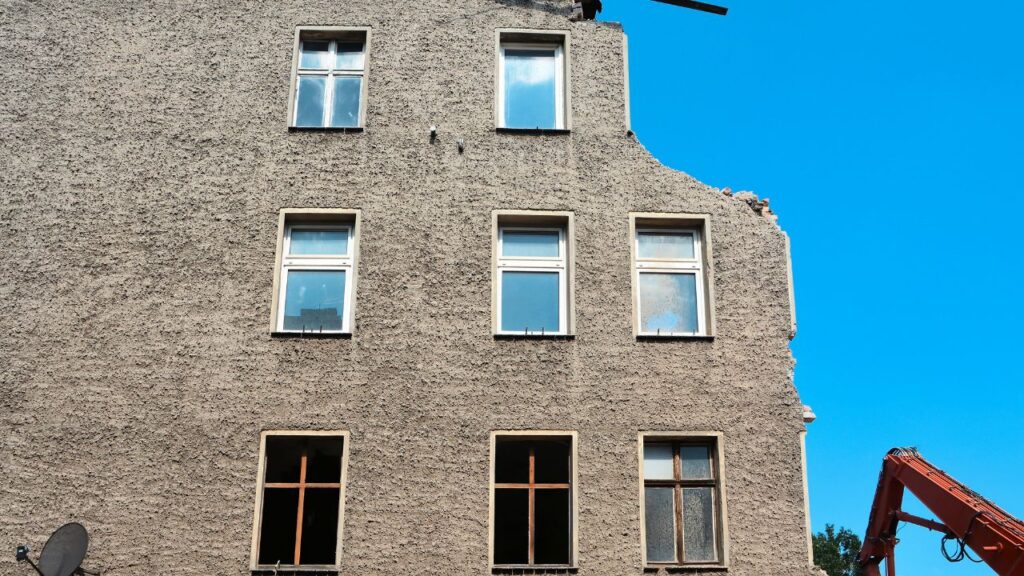
Engaging in comparative bidding is a strategic move to ensure competitive pricing for your cottage demolition project. Seek detailed quotes from multiple demolition contractors, including a breakdown of costs. This approach allows for a comprehensive comparison, enabling you to select a reputable contractor with competitive pricing. Choosing the right contractor not only ensures cost savings but also guarantees the quality and efficiency of the demolition process.
Exploring community salvage programs can be a win-win solution for cost savings and community engagement. Some organizations specialize in reclaiming building materials from demolition sites for reuse in community projects. By participating in such programs, you not only contribute to sustainable practices but may also qualify for tax incentives. This dual benefit makes community salvage programs a valuable avenue for optimizing cost-effectiveness in cottage demolition.
Investing time and resources in a thorough site assessment is foundational for cost-effective cottage demolition. Understanding the unique challenges and characteristics of the cottage and its surroundings enables precise planning. Identifying potential obstacles early on, such as environmental concerns or accessibility issues, helps in developing effective strategies, preventing unforeseen costs during the demolition process. A meticulous site assessment forms the groundwork for a well-informed and cost-efficient demolition project.
Demolishing a cottage involves a nuanced process with various cost-influencing factors. Accurate estimation begins with a thorough site assessment, expert consultations, and compliance with permits and regulations. Key elements like waste management, labor, equipment, and site restoration contribute to the overall budget, typically ranging from $2.40 to $30 per square foot.
Cost-saving strategies, including selective demolition, DIY salvage, comparative bidding, community salvage programs, and precise site assessments, offer practical ways to optimize expenses. These approaches not only align with sustainability goals but also provide economic benefits.
In summary, navigating cottage demolition successfully requires a strategic blend of planning, expertise, and environmental consciousness. By incorporating these insights and cost-saving strategies, you can achieve a cost-effective and responsible demolition project.
Assessing the size involves measuring square footage, while understanding the structure requires evaluating architectural intricacies. Engaging professionals for a detailed site assessment ensures precise data for estimation.
Different materials require distinct demolition methods. Wooden structures may be less complex to dismantle compared to brick or concrete. The choice of materials significantly influences time and expenses in the demolition process.
Opt for selective demolition to salvage reusable materials, consider DIY salvageable items, engage in comparative bidding for competitive pricing, explore community salvage programs, and invest in a precise site assessment to avoid unforeseen costs.
Yes, ensuring compliance with environmental regulations, proper handling of hazardous materials, recycling efforts, and adherence to disposal regulations contribute to overall expenses. However, these practices are essential for sustainable and responsible demolition.
Securing necessary permits, understanding local regulations, and meeting specific requirements set by authorities are foundational. Permit fees and additional documentation may add to the overall cost, emphasizing the need for regulatory compliance.
Estimating labor costs involves evaluating project duration based on size, complexity, and structure. Understanding the type and size of equipment required for safe demolition is essential. Consulting with demolition experts helps refine these estimates for accurate budgeting.
Here I am going to share some steps to get your cottage demolition cost estimate report.
You can send us your plan on info@estimatorflorida.com
Before starting your project, we send you a quote for your service. That quote will have detailed information about your project. Here you will get information about the size, difficulty, complexity and bid date when determining pricing.
Our team will takeoff and estimate your project. When we deliver you’ll receive a PDF and an Excel file of your estimate. We can also offer construction lead generation services for the jobs you’d like to pursue further.



561-530-2845
info@estimatorflorida.com
Address
5245 Wiles Rd Apt 3-102 St. Pete Beach, FL 33073 United States
561-530-2845
info@estimatorflorida.com
Address
5245 Wiles Rd Apt 3-102 St. Pete Beach, FL 33073 United States
All copyright © Reserved | Designed By V Marketing Media | Disclaimer